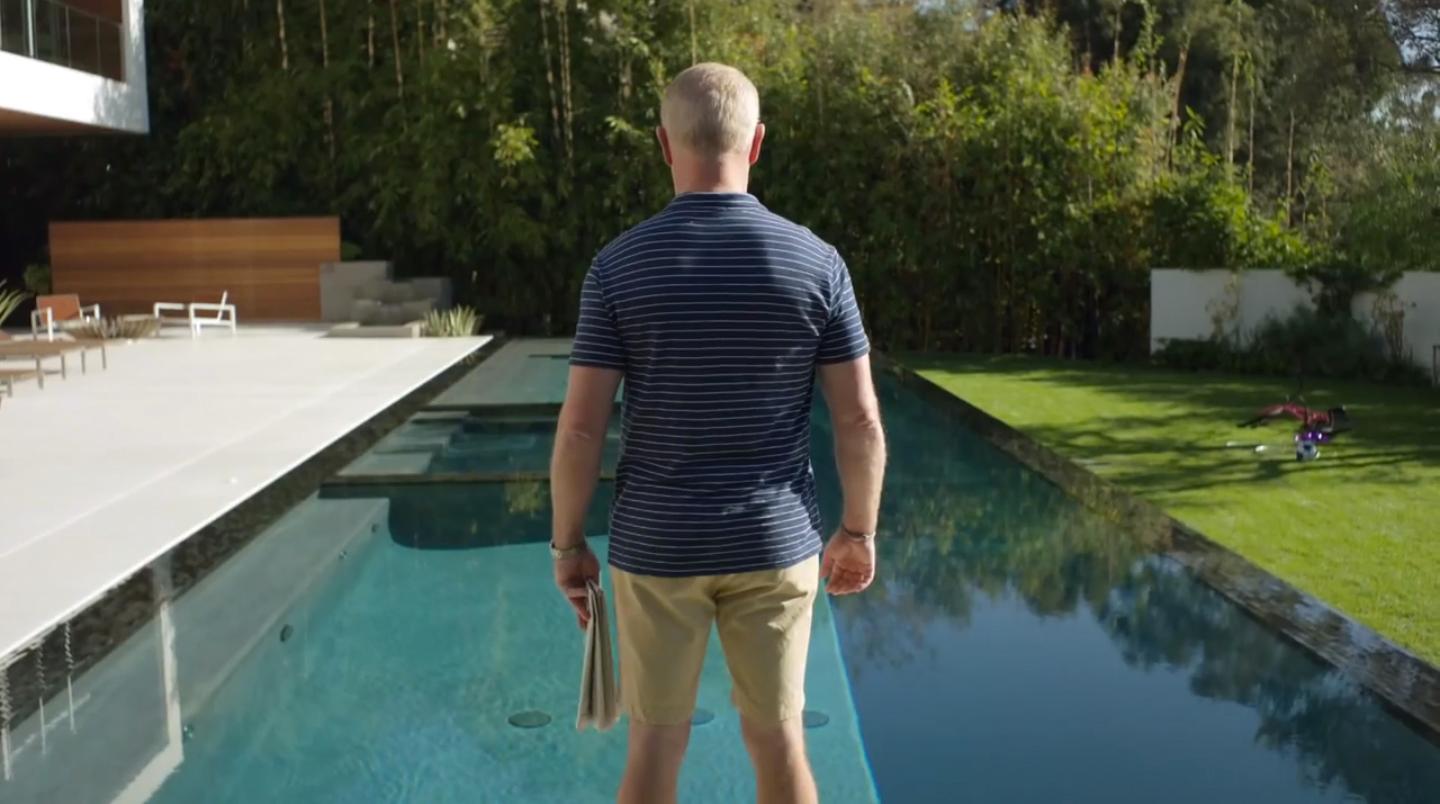That commercial for Cadillac is everything France hates about the US
A shot from the US advert for Cadillac’s 2014 ELR electric hybrid.
PARIS, France — It’s fair to assume that Cadillac didn’t have its French customers in mind when it released its latest TV spot.
The ad, for Cadillac’s new electric hybrid, is one of those that doesn’t describe the product but the type of people who buy said product. And those people, let’s be clear, are Americans.
“We’re crazy, driven, hardworking believers,” actor Neal McDonough informs his compatriots, pausing briefly to high-five a child who is doing something — we assume the accounts for her start-up lemonade venture — on a chalkboard. Not like in those other countries, where “they stroll home, they stop by the café, they take August off.”
Who could he be talking about, we wonder? His closing line dispels all doubt: “As for all the stuff” — such as this fancy Cadillac ELR, other luxury hybrids are available — “that’s the upside of only taking two weeks off in August. N’est-ce pas?”
Ooh, the gall. (Is now the time to mention that Cadillac is named for a Frenchman, the founding father of early Detroit?) It has taken French commentators a little while to get wind of the ad, which debuted on US television in February, but now that they have, it has them riled. Slate.fr calls it “pathetic.” Le Figaro calls it “appalling.” Pretty much everyone calls it “anti-French.”
No one likes to hear their country unfairly badmouthed, and France is particularly sensitive to any sign of French bashing by the brash “Anglo-Saxons,” its catch-all name for both the US and UK. Last month, for instance, an article in Newsweek by an American expat, in which she bemoaned the cost of milk in Paris and other supposedly damning signs of France’s decline, prompted a number of outraged ripostes from French writers defending their country’s welfare state (and suggesting cheaper places to buy milk).
Their problem with the Cadillac ad, however, isn’t necessarily its facts. Sure it’s a caricature, but the statistics confirm it: French people own fewer cars per household than Americans, work fewer hours and take more paid leave.
Cadillac’s critics don’t dispute any of that. They just don’t agree with “crazy, driven” Neal that it’s a bad thing. What the advert assumes will appeal to an American audience (enterprise, self-reliance, “stuff”) sounds to French ears like consumerism, materialism, arrogance — in other words, everything they love to hate about the United States.
Compare, for example, the American dream as seen by French commentator Marc Naimark, writing on Slate.fr:
If the ad “worked,” it’s doubtless because it comforts Americans who work relentlessly to buy bigger houses where they spend hardly any time, to get their hands on new gadgets that they hardly have time to use, to buy plenty of toys for their children who they hardly ever see. Neil McDonough reassures them: don’t worry, it’s good to work so much, you’ll end up with a Cadillac!
For the 80 percent of Americans who’ll never be able to afford more than $75,000 for a car, the interminable hours are to pay health insurance, child care, and somewhere to live in a neighborhood with schools that are slightly less terrible than the others.
OK, so he could be accused of a touch of American bashing there himself. But the debate that the ad stirred among US commentators, plus the parody by competitor Ford, suggests that even on the other side of the Atlantic, Cadillac’s vision didn’t ring true. (Called “Upside” rather than “Poolside,” Ford’s almost word-for-word remake features a real-life Detroit businesswoman who’s trying to do something useful and just wants a car that can transport manure and stuff.)
Which brings us on to another very important point: car commercials in general are often, well, dumb. Cartoon national stereotypes are their default mode — like the spot for French car maker Renault in which a Middle Eastern oil baron wouldn’t let his son keep his beloved Clio because it wasn’t “expensive enough.” Or the surreal one for the same company that claimed “the safest cars come from France” because a giant baguette performs better in a crash test than giant sushi. Nonsense. N’est-ce pas?
The story you just read is accessible and free to all because thousands of listeners and readers contribute to our nonprofit newsroom. We go deep to bring you the human-centered international reporting that you know you can trust. To do this work and to do it well, we rely on the support of our listeners. If you appreciated our coverage this year, if there was a story that made you pause or a song that moved you, would you consider making a gift to sustain our work through 2024 and beyond?
